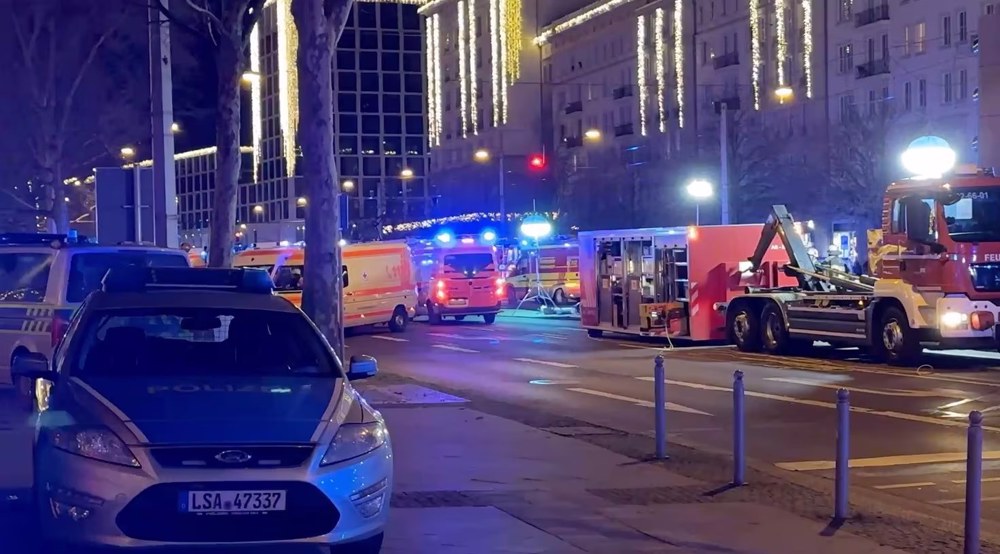German police says Berlin deadly truck crash 'intentional'
German police say a truck crash into a crowded Christmas market in Berlin that killed at least 12 people was intentional and that they are investigating a suspected "terror attack."
"Our investigators are working on the assumption that the truck was intentionally driven into the crowd at the Christmas market on Breitscheidplatz," Berlin police said in a tweet Tuesday.
Nearly 50 people were also wounded when a truck drove into the popular Christmas market outside the Kaiser Wilhelm Memorial Church in Berlin late on Monday.
The truck driver was detained about two kilometers away from the crash site. German media reported that the suspect, Naved B., is a Pakistani asylum seeker.
The 23-year-old suspect was reportedly known to police for minor offences and has stayed in a Berlin refugee shelter.
Local media said police raided a large shelter for asylum-seekers at Berlin's defunct Tempelhof airport where the suspect was registered.
The Monday’s truck crash was reminiscent of the attack on the French Riviera city of Nice in July that claimed the lives of 86 people.
Germany has been spared acts of terror claimed by Daesh such as the 2015 attacks in Paris, but the Takfiri group has claimed two assaults carried out by refugees in the country. An axe rampage on a train in Wuerzburg in July injured five people, and a bomb attack in Ansbach left 15 people injured.
German Chancellor Angela Merkel said on Tuesday it would be hard to bear if it turned out that a refugee had been the perpetrator.
"There is much we still do not know with sufficient certainty but we must, as things stand now, assume it was a terrorist attack," Merkel told reporters.
"I know it would be especially hard for us all to bear if it were confirmed that the person who committed this act was someone who sought protection and asylum," she added.
She promised that every detail would be cleared up and the perpetrator would be punished with the full force of the law.
Slovak Prime Minister Robert Fico said Europe's "cup of patience" over refugees was beginning to spill over.
"I think that the cup of patience is beginning to spill over and Europe's public will rightfully expect rather stronger (anti-migration) measures," he said.
Slovakia has been one of the toughest critics of the EU's response to unprecedented inflows of refugees, opposing quotas for asylum seekers and calling for tougher border controls. It has refused to take in refugees and migrants from Italy and Greece, citing security concerns.
France's government sought to reassure the public about safety during year-end festivities, with Interior Minister Bruno Le Roux urging people to go out and party despite security fears.
Missile fired from Yemen hits Tel Aviv
VIDEO | Iran emerging as aviation service hub through innovative solutions
Iraq exhuming remains of 100 Kurdish women, children killed by Saddam
Panama rejects talks with US over canal control
VIDEO | Israel Yemen aggression
HTS rulers name al-Qaeda operative as Syria's new spy chief
Iran voices concern about rising insecurity, violence in Syria
VIDEO | Karachi sit-in amplifies nationwide call for justice for Parachinar victims










 This makes it easy to access the Press TV website
This makes it easy to access the Press TV website